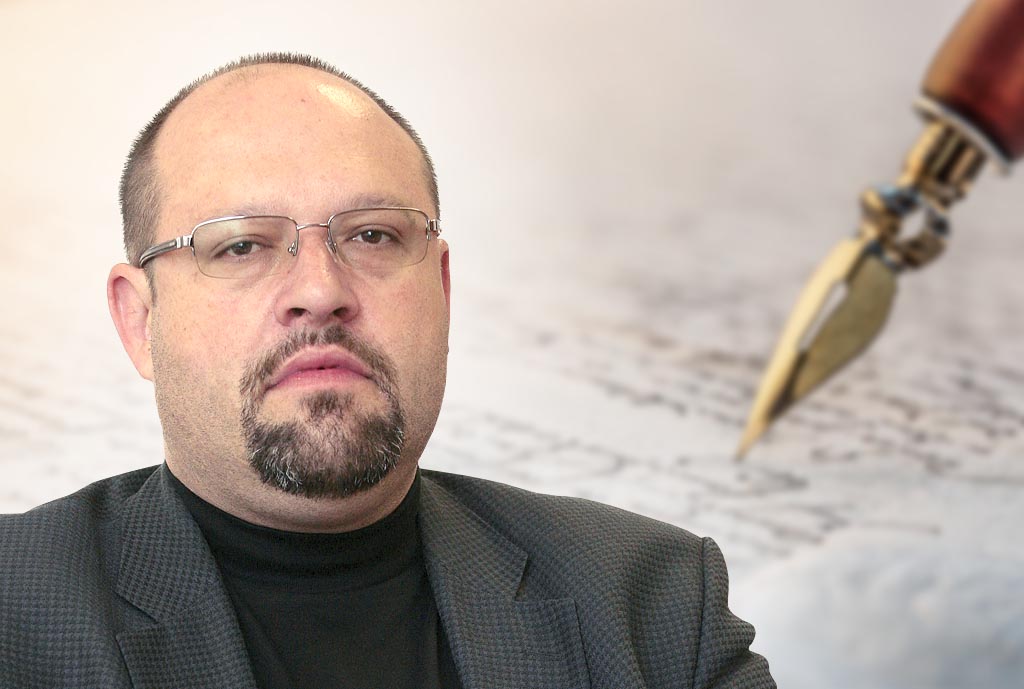By: Dr Matevž Tomšič
The attitude of Slovenian politics, the public and civil society towards the Russian aggression against Ukraine and the resulting war, which has been raging in this country for more than a year, is significantly less unambiguous than it appears at first glance.
In a formal sense, Slovenia is firmly on the side of the attacked country. It supported all the measures taken by the European Union to help Ukraine, as well as all the sanctions packages against the aggressor Russia. It even helped Ukraine with weapons and other materials. It is therefore officially on the line of the European Union, which nevertheless managed to unite in condemning Russian expansionism and acts as a firm Ukrainian ally.
In light of this, it could be said that the current government stands unequivocally on pro-Ukrainian positions. But if we look at things closely, the situation is different. Slovenian politics is more divided in this regard than it appears from the outside.
The policy of firm support for Ukraine was outlined by the previous government. It was among those in Europe that most decisively took the Ukrainian side. Let’s remember that the then Prime Minister Janša was the first foreign statesman who – together with his Polish and Czech colleagues – visited Kyiv, which was still threatened by the Russian armed forces. And he was the one who promised the Ukrainians military and other aid. Meanwhile, the then opposition, gathered in the KUL coalition, criticised such a position. The president of the Social Democrats and the current Foreign Minister, Tanja Fajon, initially spoke only about the “crisis in Ukraine” (as if it were the fall of the government, and not an attack on the country). The president of the now-defunct LMŠ party and current defence minister Marjan Šarec then (together with Fajon) accused Janša that he should go to Moscow instead of Kyiv and convince Russian President Putin to stop the war. It is not worth wasting words on the bizarreness of this proposal.
Well, the government of Robert Golob has decided to continue the policy of its predecessor in relation to the war in Ukraine. At least on a declarative level. In fact, government representatives are not opposed to any European action in this area. However, this commitment is not as determined as they try to make it out to be. Thus, none of the European MPs from the ranks of the government coalition supported the resolution by which the European Parliament designated Russia as a state that sponsors terrorism and uses terrorist means. And when the Slovenian Democratic Party proposed the adoption of a similar resolution in the Slovenian Parliament, the government parties unanimously rejected it. They did this with “arguments” that ranged from rigidity (saying that there is no legal basis for such a resolution, so it should be called a declaration) to deception, saying that there were enough condemnations of Russia to close the door to peace negotiations, and that we must not collectively condemn the entire Russian nation.
With such positions, the government came very close to the Slovenian Putinists, disguised as peacekeepers. It is about those who recently wrote an open letter to world powers with a request to stop the war in Ukraine. At the same time, under the guise of efforts for peace and concern for the fate of the people in Ukraine, an agenda is hidden that actually benefits Russian interests. Namely, they relativised the responsibility for the war and called for negotiations in which both sides should make concessions; it means nothing more than that Ukraine is supposed to give up part of its territory.
Apparently, the Slovenian left is playing on several sides. Its official part supports common European positions, but at the same time, through certain influential personalities, it sends messages to Moscow on how to understand its positions. It behaved similarly during the period of independence, when it declaratively supported the creation of an independent Slovenian state, but at the same time part of it was still flirting with the Yugoslav authorities. Under the current government, Slovenia has undoubtedly become a less reliable ally of those who want to put an end to Russia’s aggressive policy.

